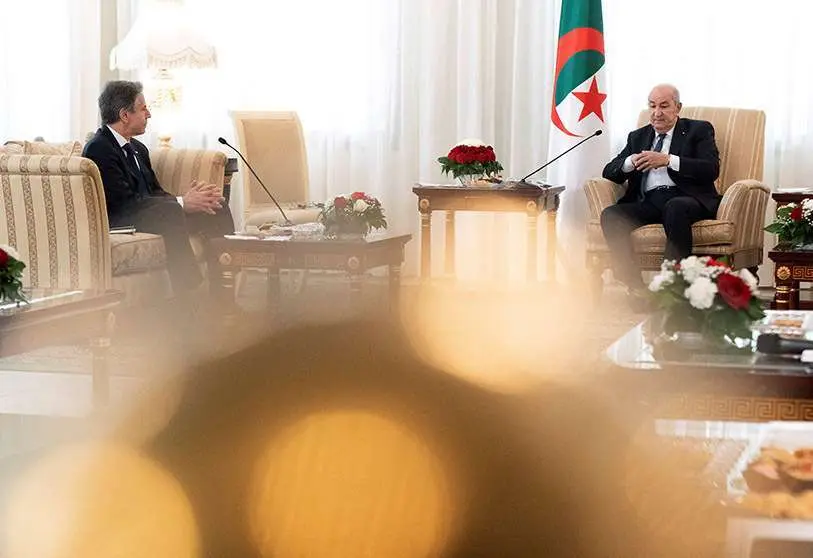Only the United States can prevent an Algerian-Moroccan war

Secretary of State Antony Blinken's visit to Morocco and Algeria is raising many questions. Returning to Washington after the mini-summit in the Negev, in which the United States tried without much success to drag the Gulf Arab countries into supporting the crusade against Russia unleashed by NATO after Russia's aggressive military operation in Ukraine, the Secretary of State made stops in Rabat and Algiers. According to the State Department's communiqué, the programme and objectives of the trip in both Maghreb capitals were similar: to strengthen strategic ties, intensify security cooperation, and reaffirm economic relations. However, these same issues were already addressed by Under-Secretary of State Wendy Sherman three weeks ago during her tour of the region, first Spain and then Morocco and Algeria.
Did Wendy Sherman's trip fail and did it have to be Secretary of State Blinken who came to impose his roadmap in the Maghreb? There is no information to confirm or deny this. In any case, the visit to the two Maghreb capitals by the head of US foreign policy is a major event.
The crisis in the Maghreb, which drags on in Algiers and Rabat, has a number of aspects that transcend regional politics. Although it is seen as a legacy of the Cold War, in reality it is much more complex. The two countries are vying for regional hegemony and its Arab and African extension. It is a geopolitical rivalry. Only in a short period of their recent history, during the anti-colonial struggle against the occupiers of their countries, France in the first place and to some extent colonial Spain as well, did Algiers and Rabat stand side by side. But once independence was won, neo-colonial forces did their best to revive latent conflicts and pit the two regimes against each other. The Cold War ended, but the Inter-Maghreb geopolitical rivalry did not. The conflict in Western Sahara, generated by an empirical and hasty decolonisation of Spain as it faced a political transition from dictatorship to democracy, was the pretext for crystallising the clash between the two poles of the Maghreb. So much so that the hypothetical solution to the Sahara crisis does not represent any guarantee that Morocco and Algeria will return to good neighbourliness.
Paradoxically, only the two Cold War protagonists, the United States and the Russian Federation, can play a role in bringing Algiers and Rabat together. Russia, because of its privileged military relations with Algiers and its growing relations with Rabat; and the US, because it is the mainstay of the Algerian economy and Morocco's strategic military ally.
However, Russia does not intend to play this role, being more concerned with its own projection as a major power in Africa and the Arab world. Only the United States can play the role of rapprochement, mediator and arbitrator between the two capitals.
The US alliance with Morocco, and in particular with the Alawi Royal Court, has been unquestionable since the Anfa Conference (Casablanca) after World War II, through the most tumultuous moments of recent Moroccan history, and remains intact today. An alliance based on trust and mutual interest.
The US alliance with Algeria, by contrast, is more pragmatic and based on shared interests. US companies are the mainstay of Algeria's hydrocarbon sector, and the recent "landing" of large US industrial, agricultural and modern American industrial conglomerates are the lifeline of Algeria's ailing economy, which in its downfall may precipitate the end of the military and plutocratic political system.
The US does not want to force a rapprochement between Rabat and Algiers, but it will not allow a new war front to open in North Africa. For Washington, Morocco is a key piece in its geo-strategy on the Atlantic seaboard, from the Strait of Gibraltar to South Africa; and Algeria is the most appropriate instrument to act as a gendarme in the Sahel and control Libya, preventing its collapse, especially after France's withdrawal from its neo-colonial trenches. In his acute perception of the Maghreb, journalist Bob Woodward points to the deep ties of the Moroccan monarchy to US deep power, as well as the close ties of the Texan oil lobby to the lungs of Algerian power. The US can save the Maghreb from implosion. But at what cost?

